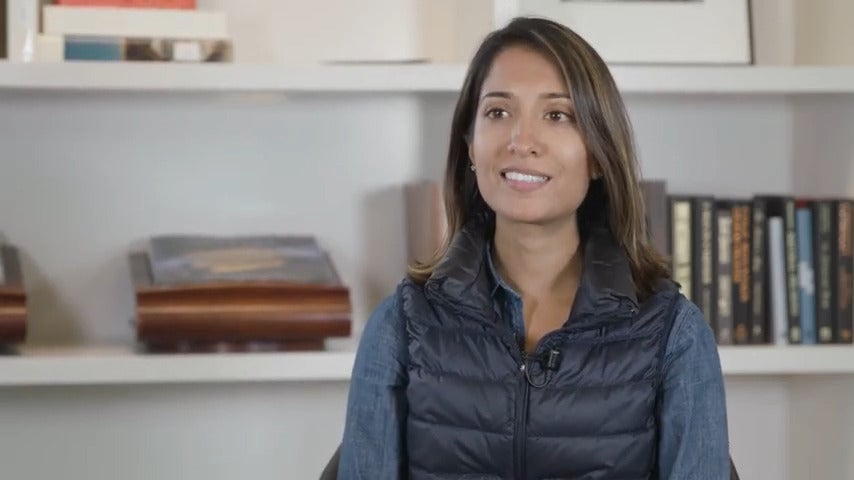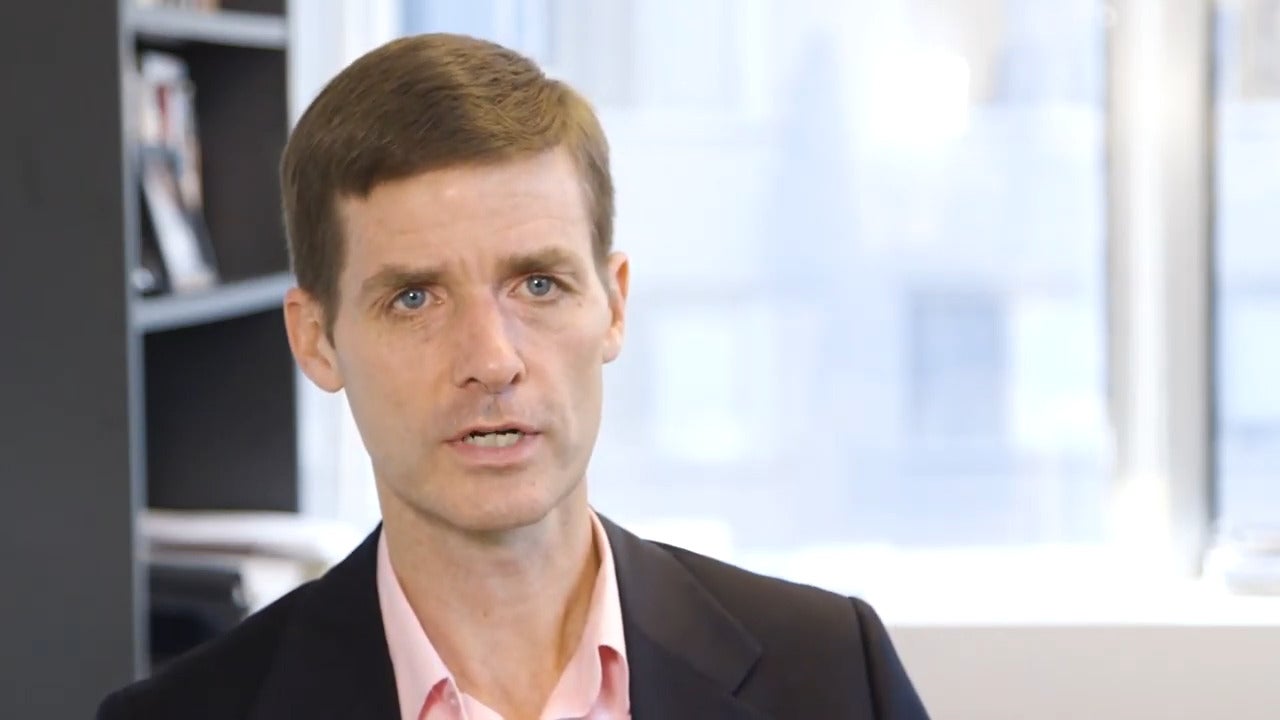The Aspen Financial Security Program (FSP) announced this week that Rachel Schneider, co-author of The Financial Diaries: How American Families Cope in a World of Uncertainty, will be joining FSP as the Omidyar Network Entrepreneur-in-Residence. As entrepreneur-in-residence, Rachel will explore how small, strategic cash infusions can go a longer way by helping families at those pivotal moments. She will develop hypotheses and launch real-world experiments and pilots to explore how cash infusions can not only be stopgap measures, but also be an unparalleled bridge toward stability and an investment in mobility. She is seeking partners with whom to expand and test those hypotheses by designing and implementing prototypes, demonstrating proof points, and drawing attention to the range of solutions that can help families in need. In anticipation of joining the team, she sat down with Ida Rademacher, vice president and executive director of the Aspen Financial Security Program and Tilman Ehrbeck, Partner, Omidyar Network.
Ida Rademacher: The Aspen Financial Security Program is thrilled to form this special collaboration with you and Omidyar Network. Can you tell us how this project materialized for you and what attracted you to bring this project to FSP?
Rachel: This is the natural evolution of the work I’ve been doing for the last several years at the Center for Financial Services Innovation (CFSI). The U.S. Financial Diaries project gave me a new window into the lives of struggling families. Omidyar Network was one of our partners on that project, and we were continually in a conversation about what we thought should be done to not only better understand the problems, but also to move toward solutions. The solution set we are tackling in this project is one that seemed particularly important, and particularly in need of a champion.
On a parallel path, FSP has built such an extraordinary platform for research and policy. My thinking has evolved through conversations at those events, and with FSP’s staff. It’s hard to imagine you’ve only been at Aspen, Ida, for a few years. So, it just seemed like the obvious thing to ask if I could join your growing network in a more formal way.
Tilman: Promoting financial health for Americans is an important priority for us, given the staggering fact that more than 55% of Americans are financially not healthy. To address this issue, we’ve invested in a number of companies over the last year (such as Propel, which supports food stamp users to better manage their monthly cash flows), and we’ve also explored ways to bring more attention to the issue and test new solutions, including support for the Center for Financial Services Innovation (CFSI) in carrying out continued research to understand the financial health of Americans. Rachel’s work at CFSI and on the U.S. Financial Diaries project have taken great strides to highlight the importance of financial health, and we are excited to support Rachel in translating that thinking into real-world experiments that will surface new solutions for promoting financial health. We were pleased to have Aspen join us as a partner in this work, given the depth of their expertise on financial security and the extensive networks they bring to the table.
Can you share some of what you are planning to do while wearing this Entrepreneur-in-Residence hat?
Rachel: There’s a reason that my title is “entrepreneur-in-residence” and not “fellow.” My job here is to launch something new. It’s not entirely clear yet what that will be, and I’m incredibly grateful that Omidyar Network and FSP are giving me the space to figure it out. What is clear is that the core of it will be experimenting with new ways to get people the financial help they need when they need it. My day-to-day will be talking with potential partners, setting up, and launching experiments, and better understanding what needs to shift in order to drive broad, systemic change.
Tilman: We like the “entrepreneur-in-residence” mindset because that’s very much how we’re viewing this work. We’re betting on Rachel as a social entrepreneur and giving her the freedom and flexibility over this next year to test ideas, build partnerships, and set up real-work experiments. Over time, we hope her work will attract other funders and partners, just as our for-profit investees demonstrate market success to bring new investors and partners into subsequent funding rounds.
What impact do you imagine that small, strategic cash infusions will have on people’s lives?
Rachel: The U.S. Financial Diaries helped us to see that financial ups and downs are the norm for many people, not the exception. There are moments throughout the year when people simply don’t have the cash on hand for needed spending, whether that is because they earned less that week or because the car broke down. Most people have heard the statistic that less than half of Americans can come up with $400 if they need to, without borrowing or selling something. That means that many families simply don’t have the cushion to weather the ups and downs without hardship. Small dollar shocks can then turn into big dollar problems. Borrowing spirals out of control; missed rent payments lead to eviction; a broken-down car makes getting to school or work painful or impossible.
Our natural instinct is sometimes to say, “People should borrow, save, or plan their way out of those kinds of ups and downs.” And that’s true, but it’s only part of the answer. The moments of shortfall are the result of big changes in our economy, changes that are outside of any one family’s control. So, we also sometimes need to hear these stories and say, “How can we help? How should the social contract evolve to take this new reality into account?” Sometimes, a flexible bridge from now to next week is what people need most. We need to figure out how to give cash to people who need it in a way that can be a hand up, not a hand-out.
Tilman: Fully agreed, Rachel. And what makes this moment unique is that recent advances in mobile-enabled technology make it feasible to cost effectively deliver small cash infusions to U.S. families at the ‘right time, right place’ in a way that simply was not possible 5-10 years ago. So we now have an opportunity to support families real-time in their moments of hardship, and help to head off some of those downstream challenges.
What do you think it will take to make household financial security a national policy priority that compels action?
Tilman: We believe that broader coalitions across the public, private, and social sectors have to come together to help American families achieve higher financial security. Our main contribution comes in the form of supporting technology-led innovations that help people better manage their financial lives at far lower costs. We hope that Rachel’s work can bring together broader partnerships at the relevant local level, for example, a local business community that rallies around their community college and says, “It is in our best interest if local youth do not drop out of college because of a temporary cash crunch, but rather finish their training and become valued employees with long-term prospects.”
Rachel: I think we’re at a tipping point on national policy in general. People’s frustration with government, especially at the federal level, is off the charts. There are two paths forward. Either we keep going as is, and trust in the federal government will continue to decline, in direct relation to its lack of effectiveness in building an inclusive economy with shared prosperity for all. Or, there will be a backlash and a real willingness by citizens to push government to solve the problems that are most urgent to them. If that’s what happens, I’m certain that household financial security will become a national policy priority with incredible urgency behind it. In either scenario, we need to look at solutions to household financial problems that come from state and municipal government, employers, and community-based organizations. There is incredible potential for change without the federal government’s involvement, and the fact is that we are seeing encouraging innovation at the state and local level, coming not only from government but also from the private and social sectors.

